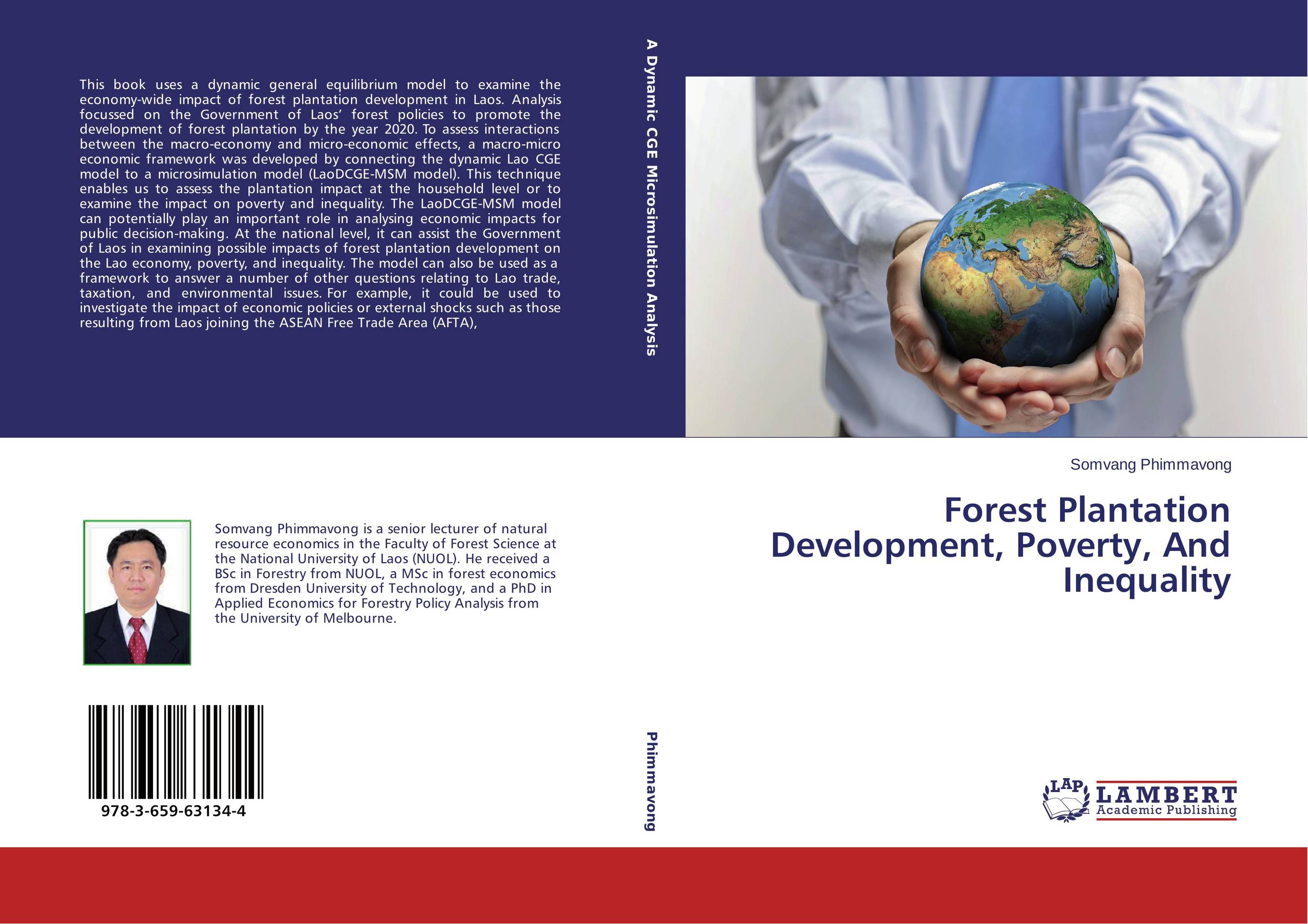| Поиск по каталогу |
|
(строгое соответствие)
|
- Профессиональная
- Научно-популярная
- Художественная
- Публицистика
- Детская
- Искусство
- Хобби, семья, дом
- Спорт
- Путеводители
- Блокноты, тетради, открытки
Forest Plantation Development, Poverty, And Inequality.

В наличии
| Местонахождение: Алматы | Состояние экземпляра: новый |

Бумажная
версия
версия
Автор: Somvang Phimmavong
ISBN: 9783659631344
Год издания: 2014
Формат книги: 60×90/16 (145×215 мм)
Количество страниц: 260
Издательство: LAP LAMBERT Academic Publishing
Цена: 51125 тг
Положить в корзину
| Способы доставки в город Алматы * комплектация (срок до отгрузки) не более 2 рабочих дней |
| Самовывоз из города Алматы (пункты самовывоза партнёра CDEK) |
| Курьерская доставка CDEK из города Москва |
| Доставка Почтой России из города Москва |
Аннотация: This book uses a dynamic general equilibrium model to examine the economy-wide impact of forest plantation development in Laos. Analysis focussed on the Government of Laos’ forest policies to promote the development of forest plantation by the year 2020. To assess interactions between the macro-economy and micro-economic effects, a macro-micro economic framework was developed by connecting the dynamic Lao CGE model to a microsimulation model (LaoDCGE-MSM model). This technique enables us to assess the plantation impact at the household level or to examine the impact on poverty and inequality. The LaoDCGE-MSM model can potentially play an important role in analysing economic impacts for public decision-making. At the national level, it can assist the Government of Laos in examining possible impacts of forest plantation development on the Lao economy, poverty, and inequality. The model can also be used as a framework to answer a number of other questions relating to Lao trade, taxation, and environmental issues. For example, it could be used to investigate the impact of economic policies or external shocks such as those resulting from Laos joining the ASEAN Free Trade Area (AFTA),
Ключевые слова: poverty, Laos, inequality, Computable General Equilibrium Model, Forest Policy, Microsimulation



